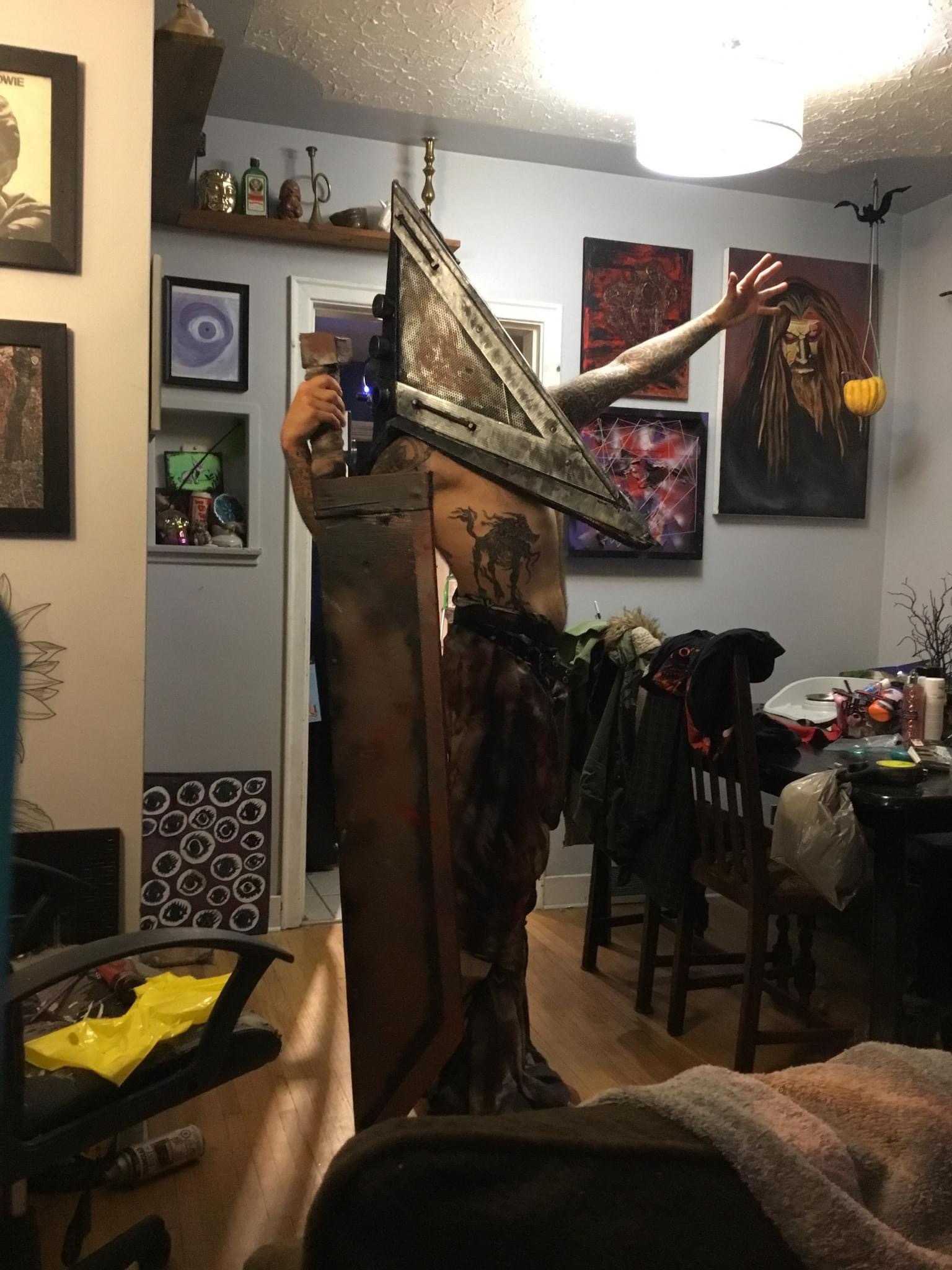The sad thing is the concept wasn’t.
Selling NFTs with no physical existence is what is pointlessly stupid.
Before they came along i considered the idea of a blockchain linked video camera where metadata of footage gets written into the chain to combat fake news and misinformation.
The goal would be to create a proof and record of original footage, to which media publishers and people who share can link towards to verify authenticity/author.
If the media later gets manipulated or reframed you would be able to verify this by comparing to the original record.
It was never a finished idea but when i first read nft i thought this is the right direction.
And then capitalism started selling apes and what the actual disgusting money possessed fuck was that.
The certificate/signature part seems okay for verification.
It’s the transferable virtual deeds being sold that are the scam. I could sell you a virtual deed to the Golden Gate Bridge right now, you could buy it but it doesn’t really mean anything.
Wait just a second! You have a bridge for sale? Tell me more.
Well first of all, it allows travel between point A and point B, usually above the ground
I’m in! Name your price.
And time travel! But you have to drive real slow for it to work
Or you could travel at any speed.
I could sell you a virtual deed to the Golden Gate Bridge right now, you could buy it but it doesn’t really mean anything.
Yeah, that’s possibly the most famous scam in history (people selling deeds to the Brooklyn Bridge), enough to where “I’ve got a bridge to sell you” is a figure of speech for calling someone gullible or naive.
And then despite the world knowing about the Brooklyn Bridge scam, the cryptobros actually went and found a bunch of suckers to fall for the exact same scam, only with blockchains instead of notary seals.
It’s kind of like selling a website that redirects to Facebook, and thinking that therefore you own Facebook.
The virtual deeds would be great for game licences and trading second hand games online
Wouldn’t a code signing be a simpler way to achieve that? The video camera can produce a hash code with each video and you can always run the same hash function against the video file to confirm that it wasn’t tampered with.
I guess the problem NFTs try to solve is authority holding the initial verification tied to the video. If it’s on a blockchain, theoretically no one owns it and the date/metadata is etched in stone, whereas otherwise some entity has to publish the initial hash.
In other words, one can hash a video, yeah, but how do you know when that hashed video was taken? From where? There has to be some kind of hard-to-dispute initial record (and even then that only works in contexts where the videos earliest date is the proof, so to speak, like recording and event as it happens).
If it’s on a blockchain, theoretically no one owns it
This is such a funny thing to say since NFTs were all about “owning” stuff on the blockchain.
Those would probably be a part of it.
Comparing a hashcode implies you have a verifiable source for the original footage.
You can do this manually and dig for the author but thats not always that simple.
A second step would be to build In a reference to the record in each media file, expressed as a small clickable logo.
You grandma deserves to be capable to verify.
This is actually a pretty decent idea considering what’s coming now with AI video. I have no idea if it could be implemented, or if media even cares anymore, but I sure would appreciate it.
A private key would be built in to the camera. It would be stored in a way that’s hard to get at, physically or in software (like the secure enclaves in phones).
The pics or videos are signed using the private key (again, this process needs to happen in a secure way without revealing the secret key).
The camera manufacturer publishes the matching public key. Anyone can use it to verify that the file matches the signature. But no one can sign a fake image unless they can get at the private key.
This would work even if the camera manufacturer no longer existed. The camera does need to ever be online.
The public/private key pairs are also part of what makes blockchains work, but for this process blockchains would add nothing.
I initially thought they were like numbered art prints, with a more robust way of guaranteeing authenticity.
Yes, people vehemently hate when you point this out because to the general public NFT = stupid overpriced digital art, and they don’t care to be convinced otherwise. My personal conspiracy theory is that the two were purposefully conflated to keep the technology from ever being taken seriously.
I was actually going to note that i feel similar about this conspiracy but i left it out in the end.
Glad not to be the only person to conceive this. Kill it before people discover a good use.
This still fundamentally suffers from the oracle problem like all blockchains solutions. You can always attack these blockchain solutions at the point where they need to interact with the real world. In this case the camera is the “oracle” and nothing prevents someone from attacking the proposed camera and leveraging it to certify some modified footage. The blockchain doesn’t add anything a public database and digitally signed footage wouldn’t also achieve.
This is a very legit concern. But to my understanding, it is possible to make the the camera that’s very hard to crack, by putting security enclave or whatever it is that makes phones hard to unlock, right inside the CCD chip. Even if somebody manages to strip off the top layer, chart out the cryptographic circuit, probe the ROM inside, etc and extract the private key, it should be possible upon finding it to revoke the key to that camera or even the entire model and make it even more painful in further models.
Another concern is of camera being pointed to the screen with a fake image, but I’ve searched and yet to find a convincing shot that doesn’t look like, well, a photo of a screen. But for this concern I think the only counter-measure would be to add photographer and publisher signatures to the mix, so that if anyone is engaging in such practice is caught, their entire library goes untrusted upon revocation. Wouldn’t be completely foolproof, but better than nothing, I guess.
That’s security by obscurity. Given time, an attacker with physical access to the device will get every bit data from it. And yes, you could mark it as compromised, but then there’s nothing stopping the attacker from just buying another camera and stripping the key from that, too. Since they already know how. And yes, you could revoke all the keys from the entire model range, and come up with a different puzzle for the next camera, but the attacker will just crack that one too.
Hiding the key on the camera in such a way that the camera can access it, but nobody else can is impossible. We simply need to accept that a photograph or a video is no longer evidence.
The idea in your second paragraph is good though, and much easier to implement than your first one.
No, it is not security through obscurity. It’s a message signature algorithm, which are used in cryptography all the time.
You’re falling for the classic paradox of security: it has to work for someone. OF COURSE if you get all of the keys and every detail of the process you can crack it. That’s true of ALL CRYPTOGRAPHY. If someone knows everything including the keys, it’s too late for any ‘secure’ device.
No, it is not security through obscurity. It’s a message signature algorithm, which are used in cryptography all the time.
Yes it is. The scheme is that when you take a picture, the camera signs said picture. The key is stored somewhere in the camera. Hence the secrecy of the key hinges on the the attacker not knowing how the camera accesses the key. Once the attacker knows that, they can get the key from the camera. Therefore, security hinges on the secrecy of the camera design/protocol used by the camera to access the key, in addition to the secrecy of the key. Therefore, it is security by obscurity.
It’s so funny looking back at it (though it was funny while it was happening too), these new-flavor cryptobros tried so hard to convince themselves that they were in the right, they made “cartoons,” games, I think they even planned like an island resort or something around their monkey pictures.
The national news media got behind it big, which I really don’t understand.
It never made any sense.
Pump and dump deep state. It’s still happening. New sucker born every minute.
Explanation: Money.
Whenever you see a headline or article and don’t understand why they’re lying or pushing something. The answer is that it makes someone money. And a large chunk of modern media is owned by a handful of people who’s goal is to make money, not tell the truth.
My coworker had a virtual NFT gallery full of Marvel NFTs, all laid out like a showroom. He literally spent thousands, now it’s worth close to nothing.
deleted by creator
a Mitch Hedberg variant
NFT’s used to be stupid.
They still are, but they used to be, too.
When my these first arrived my brother was all about them. Dude was stoked and thought he was the next billionaire. I then asked him what’s to stop someone from copying the image? He shrugged and idk man man but im going all in. It was on that day that I knew my brother was tarded
My first wife was tarded. She’s a pilot now.
Yep! Don’t worry, scrote. There are plenty of 'tards out there living really kick-ass lives!
Why come you don’t got a tatoo??
Tbh I get it from a certain point of view. We all made fun of bitcoin at first but now it’s pretty common for people to wish they could tell their younger self to get as much as they can afford.
I get the idea of not wanting to miss out on the next thing that did that.
Did we make fun of bitcoin? It was a cool currency for buying drugs on the black market at first.
I made fun of it immediately, despite also recognizing and using its ability to facilitate online purchases of contraband.
I remember seeing the monkeys and thinking, “heck I can draw that maybe I can make NFTs to sell to people who are sucked in by this.”
Is it over? I stopped watching.
Fifa is selling world cup nfts right now…
Fifa is pretty fucked up and behind the times. I am not surprised.
I remember reading a proposal how music artists could somehow use nfts as digital record keeping so when digital tickets are resold they could get a percentage of the sale each time it was resold. Making more money for artists and disinsentivising resale but you know ticket places would never let it happen. I’m sure you could do it without nfts but it seemed like a really great idea.
I’m sure you could do it without nfts
Yup! There were no technical problems that weren’t already solved, but NFT bros made grand claims unrelated to reality.
I actually would say it’s harder to say now.
It was easy at first because it was obvious.
But NFTs are still a thing… so even though it’s still a scam, it now makes you question humanity.
Pyramid schemes are still a thing too.
Amway and Herbalife should have been shut down decades ago. But the DeVos family made a lot of money on Amway.
The SEC should have intervened on crypto and NFTs, but again, it’s qui bono. Things that help rich people grift are always allowed.
Had Hillary won they might have. Was never going to happen with Trump 1.
Hahaha
You’ve heard of landlords, but have you heard of NFT-Land landlords? 🤭
Near the peak of the NFT craze I was gifted (as part of an initial mint) an NFT, which I turned around and immediately sold for $3k. Last I looked it was worth about $200. That’s the extent of my experience with NFTs.
Still surprised it’s worth $200. I thought it’d be worth a few cents or maybe a few dollars at most
It’s worth what someone will actually pay for it. I suspect that $200 is the price at which it is listed…
It’s remains sad that the name NFT is tainted by scams. In business, we start using NFTs more in various other contexts than “art”. NFT technology, without the scam marketplace, has many use cases that we only now start to see benefits from. It’s a very good way to digitize assets and use them in business processes.
Pretty much all crypto bro stuff, honestly
When they were first blowing up, I thought sure, I’ll turn a couple old unreleased tracks of mine into NFTs. I signed up to some site I forget the name of, uploaded the tracks, and then then found out I had to pay something like $500 a track to turn them into NFTs. It was a pretty duh moment for me. Of course the content doesn’t mean shit, it’s just the money. I never paid them a dime and deleted my stuff.
When I first heard of NFTs I thought the media was encoded within the blockchain - in that case sure, I wouldn’t necessarily buy one but I understand how that’d be interesting.
Ten minutes later when I was told they are just proof of purchase that points to a URL hosting your monkey image somewhere, I knew they were a total scam













